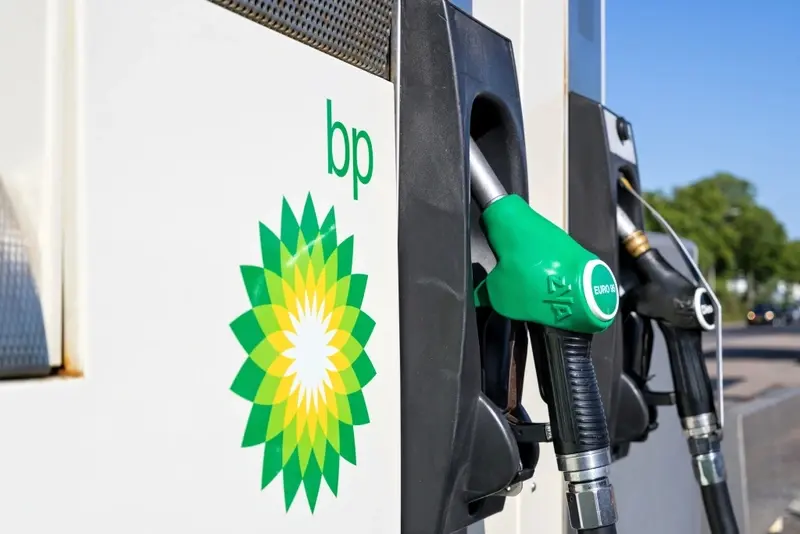
UK shares opened lower, as they caught up with other global markets following the three-day holiday weekend, ahead of a big week for central bank decisions.
The FTSE 100 index was down 32.64 points, or 0.4%, at 7,511.91. The mid-cap FTSE 250 index was down 12.02 points, or 0.1%, at 20,696.69. The AIM All-Share index was down 2.31 points, or 0.1%, at 1,019.95.
The Cboe UK 100 index was down 0.2% at 748.59. The Cboe 250 was down 0.1% at 18,245.77. The Cboe Small Companies climbed 0.2% to 15,173.09.
In mainland Europe, the CAC 40 in Paris was up 0.6% and the DAX 40 in Frankfurt was up 0.7%. Both markets were open on Monday, with the French index falling 1.9% and the German one by 1.1%.
In the US on Monday, Wall Street ended higher, with the Dow Jones Industrial Average up 0.3%, S&P 500 up 0.6% and Nasdaq Composite up 1.6%.
In the FTSE 100, M&G was the best performer early Tuesday, up 3.0%, after HSBC raised the investment manager to 'buy' from 'hold'.
In addition, St James's Place was up 1.9% after HSBC also upgraded the wealth manager to 'buy' from 'hold'.
BP was up 2.0%. The oil major said it swung to a first-quarter loss due to its decision to exit from its shareholding in Rosneft in response to Moscow's invasion of Ukraine; however on an underlying basis, the oil major reported a big jump in profit.
For the three months that ended March 31, BP swung to an attributable loss of $20.38 billion from a $4.67 billion profit in the first quarter last year. BP said the reported result included pretax adjusted items of $30.8 billion.
By its preferred metric, BP swung to a replacement cost loss of $23.04 billion from a replacement cost profit of $3.33 billion the year before.
The London-based firm attributed the loss to its decision to exit its near-20% shareholding in state-owned Russian oil firm Rosneft. BP said that, in the first quarter, the total post-tax charge for this was $25.5 billion.
On an underlying replacement cost basis, BP reported a profit of $6.25 billion, up 54% from $4.07 billion in the fourth quarter of last year and more than doubled from $2.63 billion a year ago.
BP raised its first-quarter dividend by 4.0% to 5.46 cents from 5.25 cents the year before. Further, during the first quarter BP generated surplus cash flow of $4.1 billion and said it intends to execute a $2.5 billion share buyback prior to announcing its second quarter results.
Rival oil producer Shell, which posts its own first-quarter numbers on Thursday, was down 1.0%.
BP's results come as calls from the opposition Labour Party for a windfall tax on UK oil majors grow louder, as the country grapples with a cost-of-living crisis.
Last week, UK Chancellor of the Exchequer Rishi Sunak appeared to distance himself from such a tax but did not entirely rule it out. Sunak called on companies making generating large profit to invest the cash back into the UK instead.
‘It sounds appealing. 'Great, we're taxing bad energy companies more, that will solve all our problems',’ he said in an interview with Mumsnet. ‘The reason we haven't gone down that road is, really simply?we need to invest more. That's why we haven't gone for some extra tax. Because what I don't want to do is discourage investment in our own energy supplies.’
On AIM, Hutchmed (China) was down 14% after the drugmaker said the US Food & Drug Administration has rejected its surufatinib for treatment of pancreatic neuroendocrine tumours.
In a complete response letter, the FDA said the current data package, based on two positive phase three trials in China and one bridging study in the US, does not support an approval in the US ‘at this time’.
The FDA said a multi-regional clinical trial of surufatinib is required for US approval. Surufatinib was approved in China for the treatment of pNETs and extra-pancreatic neuroendocrine tumours in June 2021 and December 2020, respectively.
In Asia on Tuesday, the Hang Seng index in Hong Kong was down 0.2% in late trade. The S&P/ASX 200 in Sydney closed down 0.4%. Markets were closed in Tokyo for Constitution Memorial Day and in Shanghai for the Labour Day holiday.
The dollar was higher across the board as the US Federal Reserve's two-day policy meeting gets underway on Tuesday, while a rate decision by the Bank of England is due on Thursday.
The pound was quoted at $1.2540 early Tuesday, down from $1.2568 at the London equities close Friday. The euro was priced at $1.0521, down from $1.0547. Against the Japanese yen, the dollar was trading at JP¥130.17, up from JP¥129.68.
Earlier Tuesday, the Reserve Bank of Australia raised interest rates in an attempt to combat inflation that has ‘picked up more quickly’ than expected. The Sydney-based central bank raised the main lending rate by 25 basis points to 0.35%, the first increase since November 2010.
‘The board judged that now was the right time to begin withdrawing some of the extraordinary monetary support that was put in place to help the Australian economy during the pandemic,’ Governor Philip Lowe said.
Brent oil was quoted at $106.71 a barrel on Tuesday morning, down sharply from $110.30 late Friday. Gold stood at $1,860.33 an ounce, down from $1,906.75.
The economic events calendar on Tuesday has eurozone unemployment data at 1000 BST.
Copyright 2022 Alliance News Limited. All Rights Reserved.




